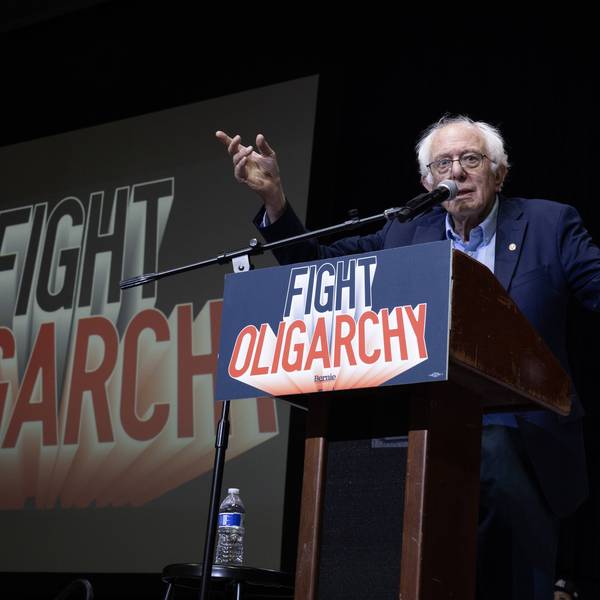Tuesday night's first gotcha question from Anderson Cooper about whether the American people would ever elect a socialist to office was one that Bernie Sanders was no doubt expecting. Progressive historian and BillMoyers.com contributor Bernard Weisberger didn't think his answer was altogether bad (watch below), but he took time to write out the response he wishes the other Bernie had given. He also included a response to Hillary Clinton's later statement about how "Denmark wasn't the United States."
Well, first of all, the last I heard Vermont was still an American state and the people of Burlington elected me as mayor four times and were satisfied because I gave them an honest and efficient administration. Then the people of the state as a whole sent me back to the House of Representatives several times, and next to the Senate. They responded to substance, not labels. I think we're still smart enough to do that.
[As for our not being Denmark, I am not trying to turn the United States into Denmark or any other country in the world. But if we look and see that Denmark has a health care system that treats its people better than ours at lower cost, just as an example, are we forbidden to try it because it hasn't got a "Made in America" label on it? We're a lot smarter than that -- and saying otherwise is a slander on our people.]
I consider myself a social democrat, yes. And for me, what social democracy simply means is a system that leaves room for small enterprises and individual liberty but also recognizes the fact that we're all part of a larger community, and what hurts any one group of us eventually hurts us all. So there are some things we don't leave to the so-called free market. We don't want people going hungry or suffering from sickness or at the bottom of the ladder in educational attainments because they can't afford them -- especially when in economic downturns millions of us lose jobs through no fault of our own. So we tax ourselves to put money into a common kitty to make sure those things don't happen and we're all the better off for it. In other words we agree to bear each others' burdens and make others' suffering our concern, bound in "brotherly affection." A far cry from the virtues of unrestricted and unregulated winner-take-all competition.
And do you know that that's a basic American idea? What I just said comes straight from a sermon preached by minister John Winthrop to the band of fellow Puritans landing in Massachusetts in 1630. And it's an idea picked up again and again throughout our history, from early state laws providing for public health and safety and punishing fraud, right on through to the Progressive period and the New Deal when we provided security for our elders, strengthened the bargaining power of workers, created public works programs to stimulate employment and spending, opened space for small business by breaking trusts, and reduced inequality to reasonable levels -- without touching the basics of capitalism. That's the American way and always has been, and I could name a long list of American heroes who embraced it if there were time. So let's move past labels and start addressing the crises we face now.
This post has been updated to reflect that John Winthrop made his famous "A Model of Christian Charity" speech in 1630, not 1634, as previously posted.




